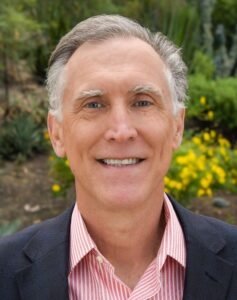When the Sciences and the Humanities Meet

Dear Pitzer Community,
Something exciting has risen next to our campus.
In this issue of Participant, you’ll learn more about our new state-of-the-art science facility and the renaming of our entire science complex as The Nucleus. Rather than use my message here to tell you about the new physical space and resources available to our students, I want to focus on something slightly different.
The Nucleus doesn’t just fulfill a long-awaited dream for our science faculty; it’s also a visible reminder of the special power that science has in a liberal arts setting.
We’re living at a moment in history when science is being met with skepticism and its contributions are taking place in an environment that is increasingly politicized. What so many of us consider important and undeniable—climate change, for instance—is struggling to be accepted even when the data seem obvious.
But the way that science is taught at Pitzer (and Scripps) offers a powerful response to such challenging circumstances. Never before has scientific training anchored in a humanities tradition been more valuable.
A recent article in Inside Higher Ed suggests what that value is.
“Humanists can offer critical perspectives on the methods, aims, and impact of scientific inquiry,” the article explains. “By bringing philosophical rigor, ethical sensitivity, and cultural awareness to the study of science, they contribute to a more nuanced, reflective, and socially engaged understanding of science and its role in society.”
The humanities, as well as the social sciences, provide our natural science students with a vital context for understanding scientific discoveries. No discovery happens in a vacuum—unless, of course, you’re talking about one of the Dewar flasks used in our laboratories—and the study of the humanities teaches students to see how scientific ideas emerge against the backdrop of important cultural and social changes.
Such an awareness adds a rich extra dimension to the work of our current students and alumni—including Dawn Barlow ’16, who is helping marine life navigate human intrusion into their habitats, and Richard Ampah ’25, whose linking of computers with neuroscience might lead to progress in addressing the impact of cerebral palsy on people’s lives.
A holistic approach to the sciences not only adds context and challenges biases. Its greater diversity of perspectives and insights also improves and expands our understanding of the world, and of science itself.
This argument is hardly new at Pitzer. Our College has always emphasized the role of diversity and inclusiveness in the building of knowledge for the benefit of humanity. And, as this issue of Participant illustrates, when the sciences and humanities meet, the synergies are powerful.
Provida Futuri,
Strom C. Thacker
President
Pitzer College